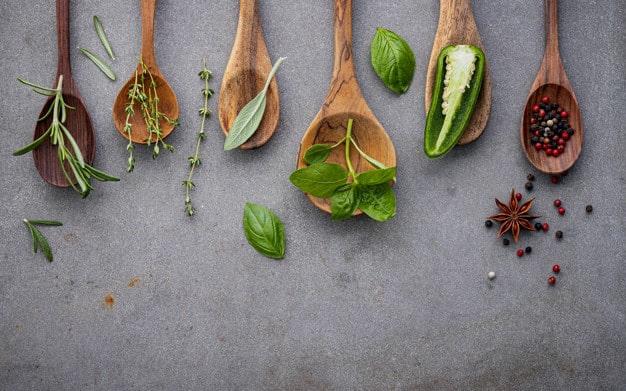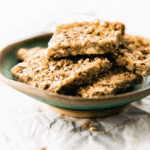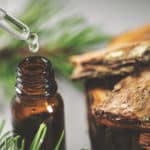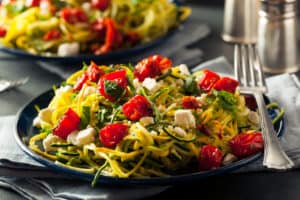Fresh herbs are known for their distinct aromas, succulent flavors, and natural health benefits. Here is everything you need to know about fresh herbs from how to use them to what they can do to better your health. This guide has it all. Read on to find out why you should be incorporating more fresh herbs into your life!
What Are Fresh Herbs?
Fresh herbs can take almost any recipe you have to an entirely new level. Jam-packed with flavor, fresh herbs can make a good meal absolutely fantastic. Think parsley, thyme, rosemary – fresh herbs have a wonderful aroma and just as much flavor.
When adding fresh herbs to a meal, you can be sure your food will have a fresher taste. Fresh herbs can even turn the blandest foods into mouth-watering dishes.
What Foods Are Fresh Herbs Used For?
Fresh herbs can be used just about anywhere. You can use them to flavor meats, salads, vegetables, or even tea. You may also want to try adding fresh herbs to soups and broths for a stronger and fresher taste.
Fresh Herbs Everyone Should Have at Home
When it comes to fresh herbs, the list can go on and on. But there are a few basic fresh herbs everyone should have on hand at all times. Whether you’re a beginner chef or expert, these fresh herbs are a must in any kitchen. Here’s our top fresh herbs list:
Basil
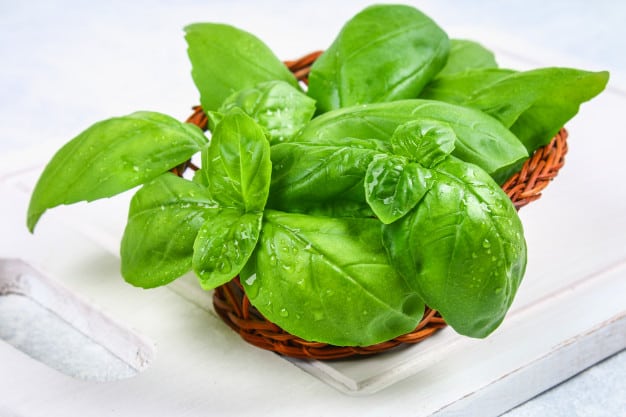 Fresh basil is probably the most widely used fresh herb. It can make your tomato sauce or soup pack a flavorful punch! You can also add it to salads or toss on top of pasta or even meats. Fresh basil slices can turn your boring chicken sandwich into a mouth-watering lunch.
Fresh basil is probably the most widely used fresh herb. It can make your tomato sauce or soup pack a flavorful punch! You can also add it to salads or toss on top of pasta or even meats. Fresh basil slices can turn your boring chicken sandwich into a mouth-watering lunch.
Plus, you can purée basil along with pine nuts, Parmesan cheese, and a hint of lemon to make fresh pesto sauce. Pesto can be used on pasta, on meat, in sandwiches – basically anywhere! And you can freeze it if need be.
Oregano
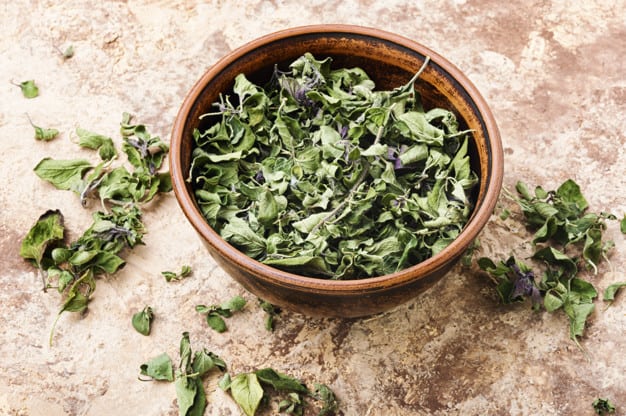 A huge part of the Mediterranean diet, oregano is a delicious spice that is just as flavorful even in its dry form. You can count on this herb to add flavor to just about any salad, cheeses, sauces, meats, or vegetables. In fact, oregano has been used in cooking for thousands of years in many parts of the world.
A huge part of the Mediterranean diet, oregano is a delicious spice that is just as flavorful even in its dry form. You can count on this herb to add flavor to just about any salad, cheeses, sauces, meats, or vegetables. In fact, oregano has been used in cooking for thousands of years in many parts of the world.
Rosemary
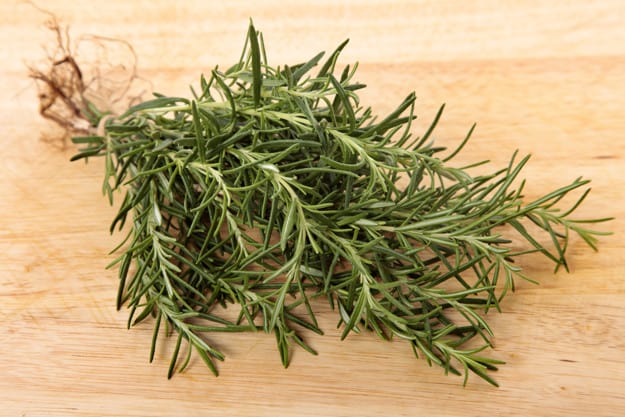 With its unmistakable aroma, rosemary not only flavors your food but also freshens up the entire kitchen when you use it. Rosemary can be put on veal roasts or turkeys to add a deep, succulent flavor to your meat. You can use it to season potatoes, add flavor to salads, spice up your soups or broths, or even to add to you tea or protein shakes.
With its unmistakable aroma, rosemary not only flavors your food but also freshens up the entire kitchen when you use it. Rosemary can be put on veal roasts or turkeys to add a deep, succulent flavor to your meat. You can use it to season potatoes, add flavor to salads, spice up your soups or broths, or even to add to you tea or protein shakes.
Thyme
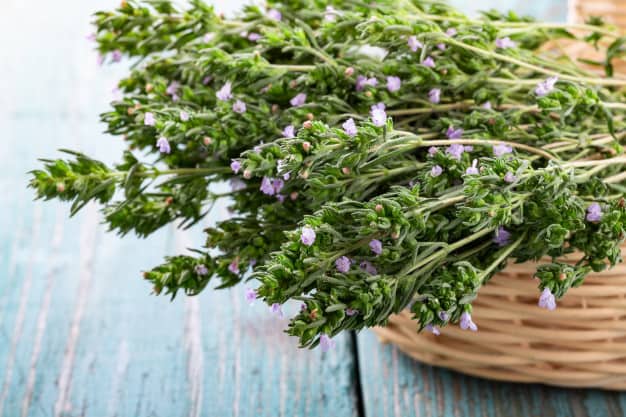 This is yet another fresh herb that has been part of cooking since the dawn of time! Part of the oregano family, this herb is tasty on just about anything. It’s excellent for adding some flavor to vegetables, meat, and even a cup of warm tea. Thyme also has medicinal qualities and has been used to treat minor health conditions like diarrhea, stomach pains, and sore throat for hundreds of years.
This is yet another fresh herb that has been part of cooking since the dawn of time! Part of the oregano family, this herb is tasty on just about anything. It’s excellent for adding some flavor to vegetables, meat, and even a cup of warm tea. Thyme also has medicinal qualities and has been used to treat minor health conditions like diarrhea, stomach pains, and sore throat for hundreds of years.
Parsley
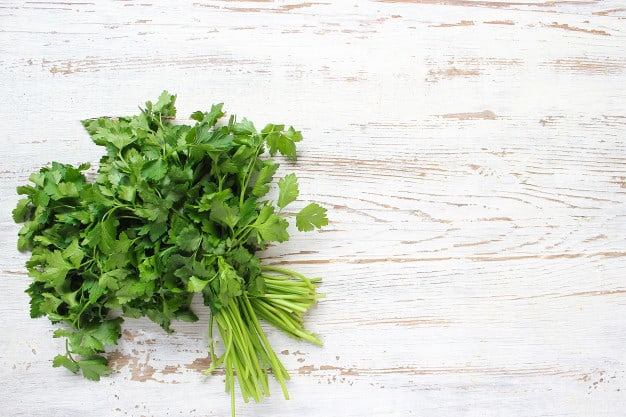 The slightly bitter herb is another fantastic choice for chefs everywhere. Whether you use it in your meals or as a fresh garnish, parsley is a tasty herb that completely transforms your meal. It can be used in fresh salads, for seasoning meats, soups or broths, or as a garnish on top of a warm meal.
The slightly bitter herb is another fantastic choice for chefs everywhere. Whether you use it in your meals or as a fresh garnish, parsley is a tasty herb that completely transforms your meal. It can be used in fresh salads, for seasoning meats, soups or broths, or as a garnish on top of a warm meal.
Mint
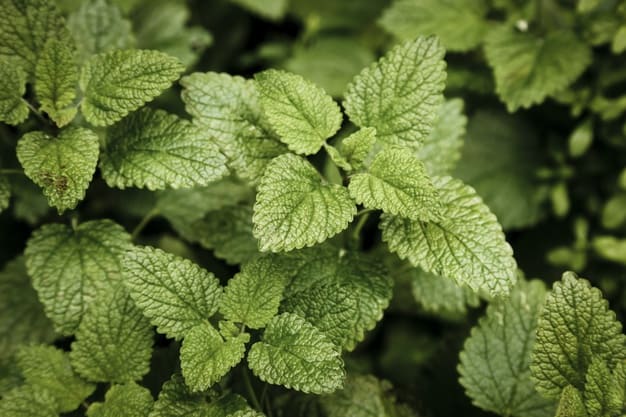 Mint is a wonderful addition to a morning smoothie or tea. In addition to its fresh and delectable taste, it is also a very healthy option. Mint is known to support healthy cholesterol levels and encourages smoother digestion. Plus, it has a fresh taste that just can’t be beaten.
Mint is a wonderful addition to a morning smoothie or tea. In addition to its fresh and delectable taste, it is also a very healthy option. Mint is known to support healthy cholesterol levels and encourages smoother digestion. Plus, it has a fresh taste that just can’t be beaten.
Dill
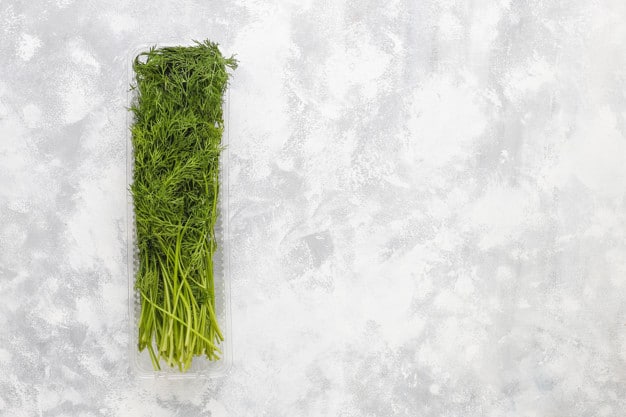 This fresh herb is ideal for seasoning meat, potatoes, fish, and seafood. It packs a real punch, and a tiny bit goes a long way. If you grow your own, you can count on your dill plant to attract insects that can actually help your entire garden flourish. It’s also easy to cultivate and can be used in a million and one recipes.
This fresh herb is ideal for seasoning meat, potatoes, fish, and seafood. It packs a real punch, and a tiny bit goes a long way. If you grow your own, you can count on your dill plant to attract insects that can actually help your entire garden flourish. It’s also easy to cultivate and can be used in a million and one recipes.
Sage
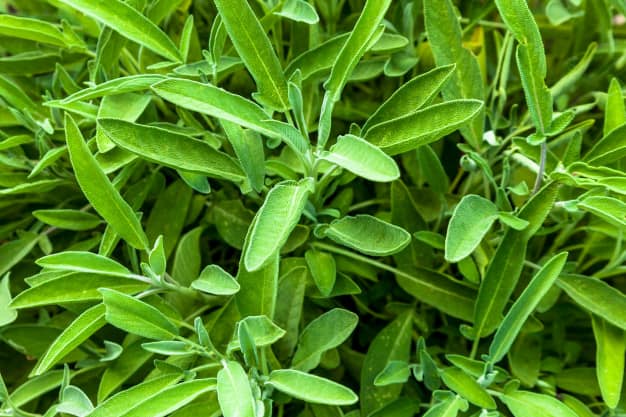 This very powerful herb can season meats and vegetables, but you likely won’t taste any other herbs or spices when sage is around. It can have a very strong taste, so it will likely be the focal point of your dish. It not only tastes great, but it has some health benefits, too. Sage is known for its anti-inflammatory properties and has also been linked to supporting a good memory.
This very powerful herb can season meats and vegetables, but you likely won’t taste any other herbs or spices when sage is around. It can have a very strong taste, so it will likely be the focal point of your dish. It not only tastes great, but it has some health benefits, too. Sage is known for its anti-inflammatory properties and has also been linked to supporting a good memory.
Coriander/Cilantro
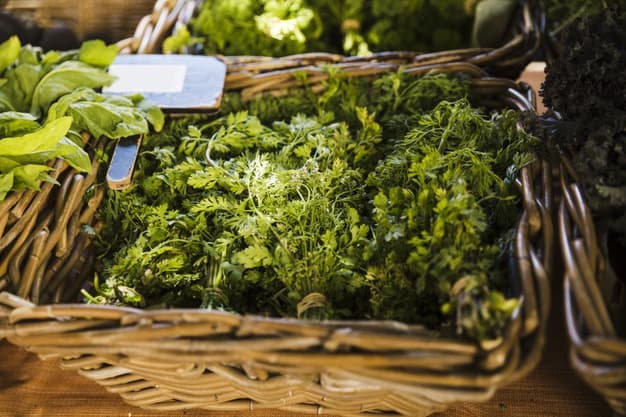 Known as the Chinese parsley, this fresh herb is also commonly known as cilantro. It has a similar makeup to parsley, but the flavor is entirely different. Cilantro is a very overpowering flavor, so you may not want to mix in too many other ingredients. It’s excellent in guacamole, for flavoring salads and spicing up bland meat dishes.
Known as the Chinese parsley, this fresh herb is also commonly known as cilantro. It has a similar makeup to parsley, but the flavor is entirely different. Cilantro is a very overpowering flavor, so you may not want to mix in too many other ingredients. It’s excellent in guacamole, for flavoring salads and spicing up bland meat dishes.
There is often a parsley vs. cilantro debate. But the truth is, the flavors are so different that one simply cannot replace the other. It’s all about your personal preferences.
Fennel
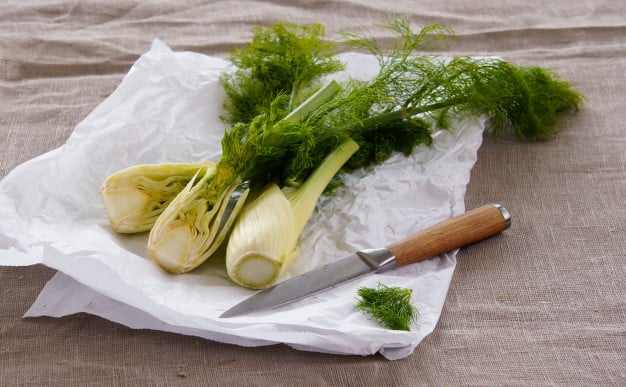 Popular in the Mediterranean diet – as it hails from the region – fennel is used to add powerful flavor to meat, but can also be eaten raw and whole. The anise leaves on top are also popular. Fresh fennel wedges can be served in a salad, as a garnish, or alone as a snack. Dried fennel can be added to various recipes to flavor meats and vegetables.
Popular in the Mediterranean diet – as it hails from the region – fennel is used to add powerful flavor to meat, but can also be eaten raw and whole. The anise leaves on top are also popular. Fresh fennel wedges can be served in a salad, as a garnish, or alone as a snack. Dried fennel can be added to various recipes to flavor meats and vegetables.
Chamomile
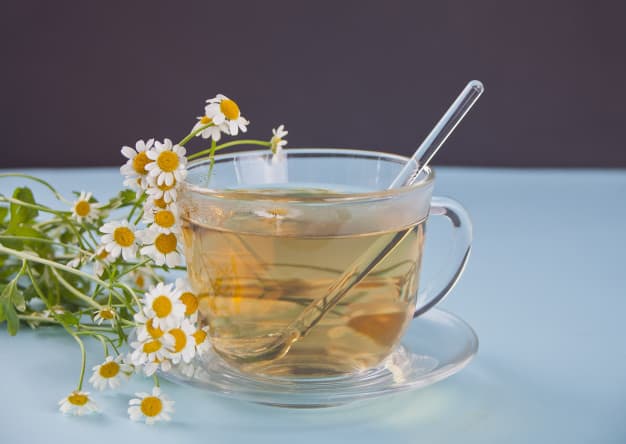 This calming and soothing fresh herb is as delicious as it is useful. Chamomile tea has long been known to cure stomach troubles, soothe a sore throat, and help with proper digestion. It has a sweet flavor that pairs well with honey. It has long been used for treating fevers and inflammation.
This calming and soothing fresh herb is as delicious as it is useful. Chamomile tea has long been known to cure stomach troubles, soothe a sore throat, and help with proper digestion. It has a sweet flavor that pairs well with honey. It has long been used for treating fevers and inflammation.
Chives
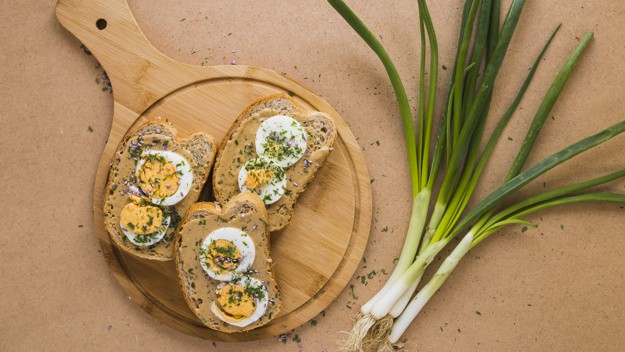 Popular in French cuisine, chives pair well with sour cream. But it also complements a variety of other dishes, as well, from seafood to soup. Diced chives will bring out the best flavors in your seafood or fish recipes and make your soup broth pack a little more punch.
Popular in French cuisine, chives pair well with sour cream. But it also complements a variety of other dishes, as well, from seafood to soup. Diced chives will bring out the best flavors in your seafood or fish recipes and make your soup broth pack a little more punch.
Bay Leaves
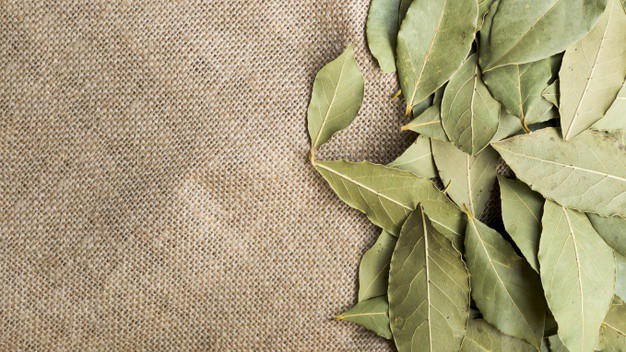 A perfect addition to sauces and stews, bay leaves have an understated yet delicious flavor to them. If you’re planning on a long-simmering dish or crock-pot meal, one or two bay leaves can make all the difference. Normally, bay leaves are used for flavoring but are not served to eat along with the meal and should be removed.
A perfect addition to sauces and stews, bay leaves have an understated yet delicious flavor to them. If you’re planning on a long-simmering dish or crock-pot meal, one or two bay leaves can make all the difference. Normally, bay leaves are used for flavoring but are not served to eat along with the meal and should be removed.
Other Fresh Herbs to Have at Home
There are other fresh herbs that you may benefit from having that are not commonly used for cooking but have a number of health benefits we just can’t ignore.
Lavender
This is an excellent herb to have on hand if you love aromatherapy. The scent of this sweet herb is calming, soothing, and may even be useful in other ways. Preliminary studies show there may be a link between lavender and the prevention of lice.
Aloe Vera
This plant is known for its healing properties. Having an aloe vera plant handy can help with cuts, burns, and other ailments. With proper care, this plant, which comes primarily from Africa, can be successfully grown indoors.
Stevia
If you’re trying to limit your intake of refined sugars and processed foods, you may want to try keeping some stevia around. A natural sweetener, stevia can replace sugar and add a sweet smell to your fresh herb garden – whether indoors or outdoors.
Fresh Herb Myths Debunked
As with anything, there are always myths or old wives’ tales surrounding just about anything. Here are a few myths about fresh herbs that simply don’t hold water.
Fertility Herbs Help You Conceive
While fertility herbs can be used to support fertility medications, unfortunately, fertility herbs alone will not be able to have enough of an effect on your body to aid conception. If you are having trouble conceiving, it is best to meet with your healthcare practitioner to discuss your options.
Herbs Are Best Fresh
The thought that the dried versions of certain herbs are either less flavorful or less effective is simply untrue. While fresh herbs may have a slightly different flavor, dried herbs have just the same effects as fresh ones. It is often easier to keep dried herbs on hand than fresh, so don’t worry about opting for dry instead.
Fresh Herbs Are Replacement for Medicine
It’s true that herbs do have some health benefits, but they should not be used in place of scientifically proven effective medications. Especially when it comes to serious illnesses, following your doctor-approved medication plan is always your safest bet.
All Fresh Herbs Are Safe Because They Are Natural
Unfortunately, there are many natural, local plants that are, in fact, very hazardous to our health. It is important to stick to herbs that have already been proven safe for human consumption. Herbs sold in pill form at natural health food stores may not be safe. Holistic treatments are often not FDA-approved.
Just because a product is all-natural, does not make it safe. Remember, tobacco and oleander are all-natural, too.
How to Preserve Fresh Herbs
If you live in a climate that isn’t warm all year, your herb garden may come to an end every fall. That doesn’t mean you have to lose all of your fresh herbs. If stored correctly in freezer-safe containers or plastic bags, most herbs can be frozen for up to six months and used throughout the year.
The Takeaway
Fresh herbs are a fantastic addition to any kitchen pantry. Not only can they enhance your meals and make you look like a professional chef, but they often have health benefits and nutritional qualities that help us lead healthier lives. Keeping fresh (or dried) herbs on hand means you’ll always have a quick fix for any recipe.
If you want to lead a healthier lifestyle, you can do so by cutting processed sauces and spread from your life and using natural fresh herbs to add flavor to your food instead. Sauces and dressings are often very high in both fat and sodium. Instead, opt for fresh herbs that will flavor your meals and actually work to control your cholesterol levels instead.
When purchasing dried herbs at the store, look for options that are not combined with anything else. For example, don’t choose a parsley-based seasoning mix. Instead, choose simple parsley so that you know your meals will be free of added salt and fat.
If you’re looking to improve your cooking game, this fresh herbs list will do you no wrong. Stock your kitchen pantry today and start experimenting with some fantastic and surprisingly easy dishes!
